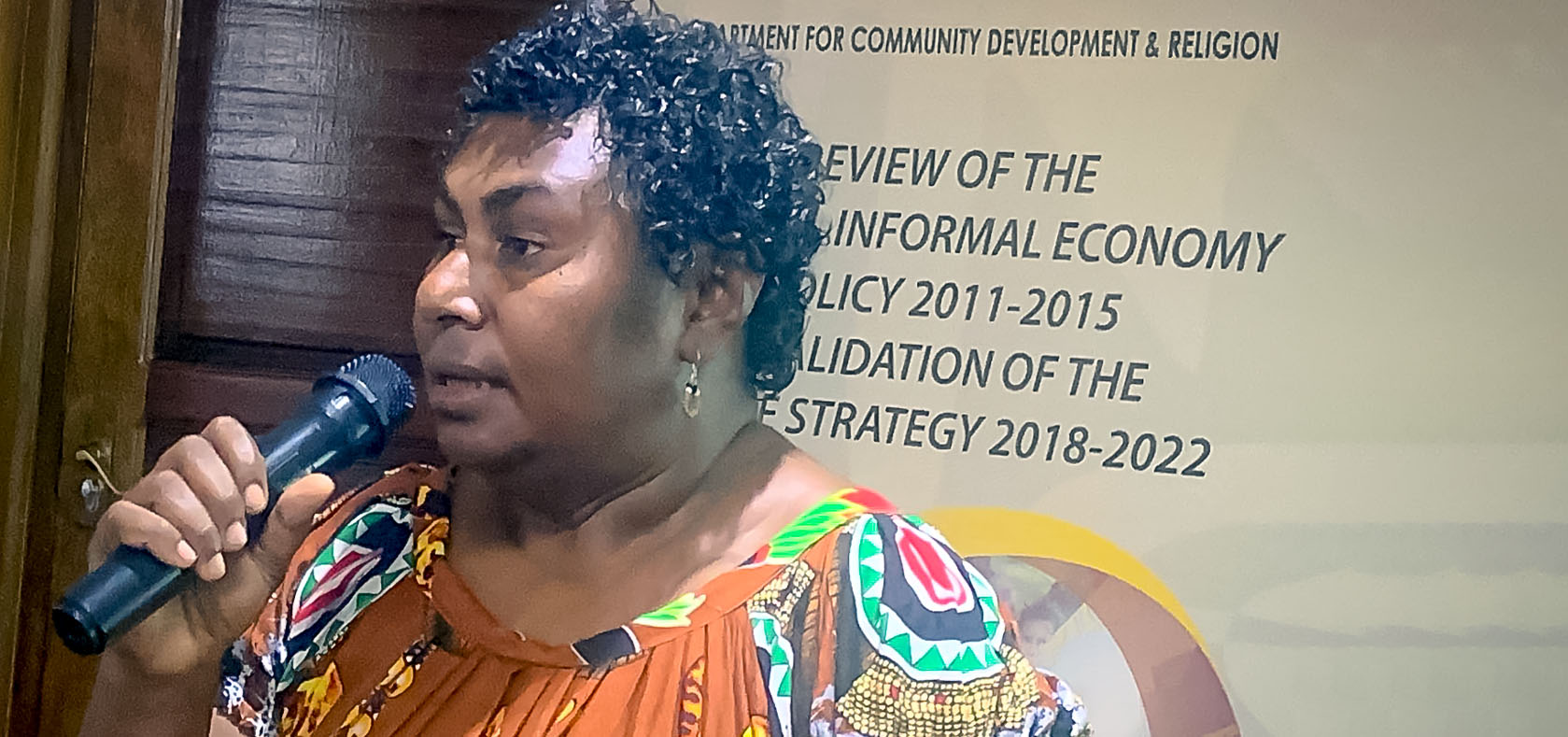A vendor rebuilds her livelihood after COVID-19 lockdowns
Date:
Author: Aidah Nanyonjo

Port Moresby, Papua New Guinea — When the Government’s COVID-19 lockdown shut Kerevat market in early 2020, vendor Florence Periwanga was left with no income to support her family of eight. New, with training provided by UN Women, she is back in business.
When the lockdown came, Periwanga, 39, had been doing tailoring and selling traditional meri blouses at the market for only a year after leaving her previous job as a teacher.
“This was a brief period, but it really affected us,” she recalled. “Police was ever on standby to stop people from accessing the market. Customers were only allowed to buy from big shops.”
In June 2020 UN Women started its Markets Economic Recovery and Inclusion programme to help female vendors in 12 major markets across Papua New Guinea cope with the impacts of the COVID-19 pandemic. Periwanga was among the first women to be trained under the programme, which is funded by the Government of Australia.
During the first year of the programme, 311 vendors received training in baking, food handling, textile designing and sewing. They also got linked up with micro banks for savings and affordable financing. After the training, Periwanga ventured into baking and selling products such as biscuits, cookies and bread. At first she baked at her home and sold to neighbors, the economy reopened, started supplying markets and schools.
With part of the profits, she bought an electric oven, to add to the gas oven that she had been using. The financial training helped Periwanga to appreciate the importance of saving money however little one earns. She opened a bank account, though because of conditions such as collateral, she was unable to get a loan to invest in her bakery business.
But she registered her business and got startup capital for small and medium enterprises from the National Development Bank. She plans to set up a village bakery where more women in her community can get trained in baking. She is now securing land in a nearby town where the bakery will be built.
“UN Women empowered us; we have to empower others as well,” Periwanga said. “Once I finish putting up the village bakery, I will train mothers in bakery, so that apart from selling fresh produce in the market, they can have additional skills in baking to supplement their incomes.”
Periwanga is the chairperson of both the East New Britain Market Vendors’ Association and the Kerevat Town Vendors Cooperative Society.